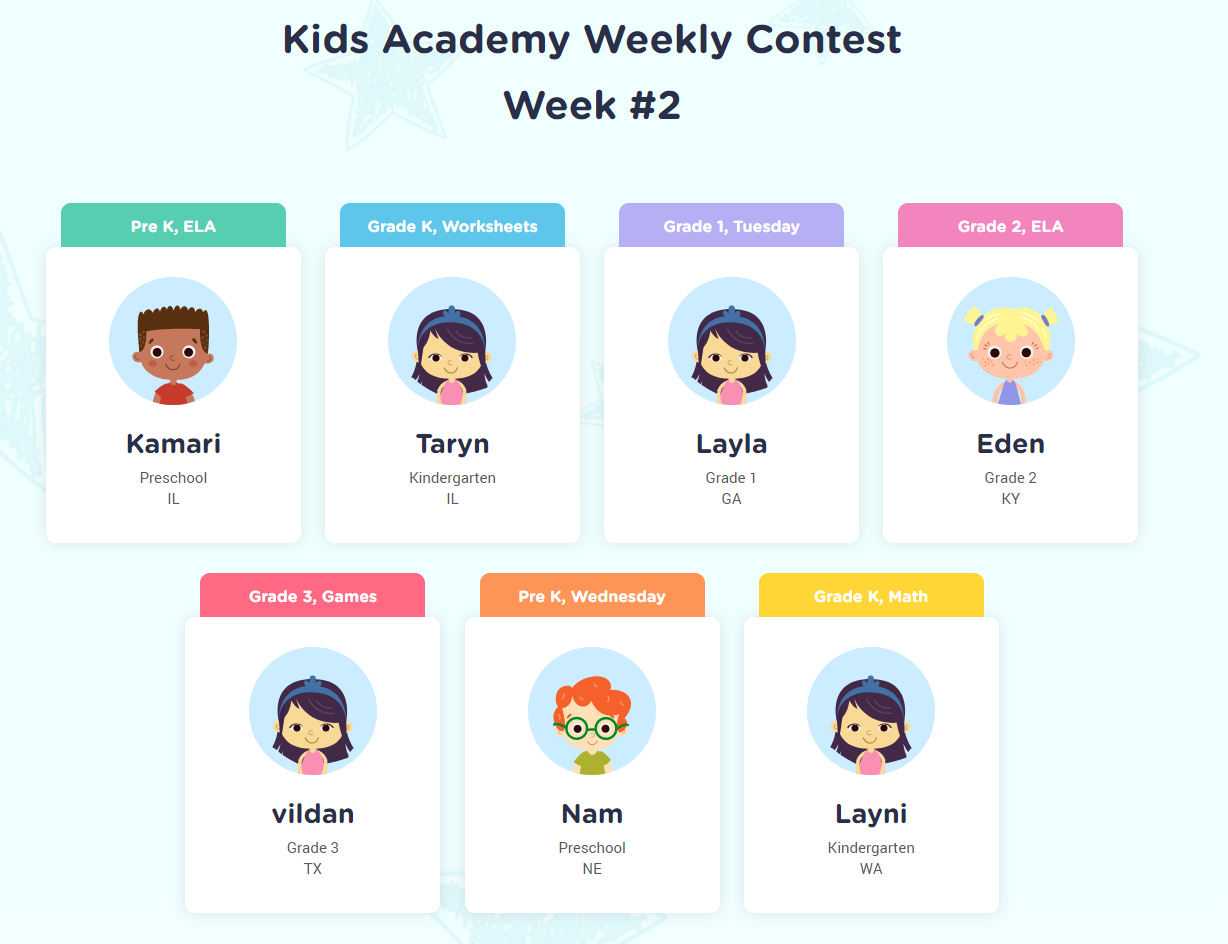Letter Tracing Worksheets for Ages 3-4
8 filtered results
-
From - To
Introduce your child to the exciting world of writing with our Letter Tracing Worksheets for Ages 3-4! Specially designed for preschoolers, these fun and engaging worksheets help young learners develop essential fine motor skills and hand-eye coordination. Featuring easy-to-follow tracing lines, cute illustrations, and alphabetical order, these printables make learning letters enjoyable. Perfect for home or classroom use, our worksheets foster confidence and early literacy skills, ensuring your child is ready for the next learning adventure. Download now and watch your little one thrive as they master the alphabet one letter at a time!
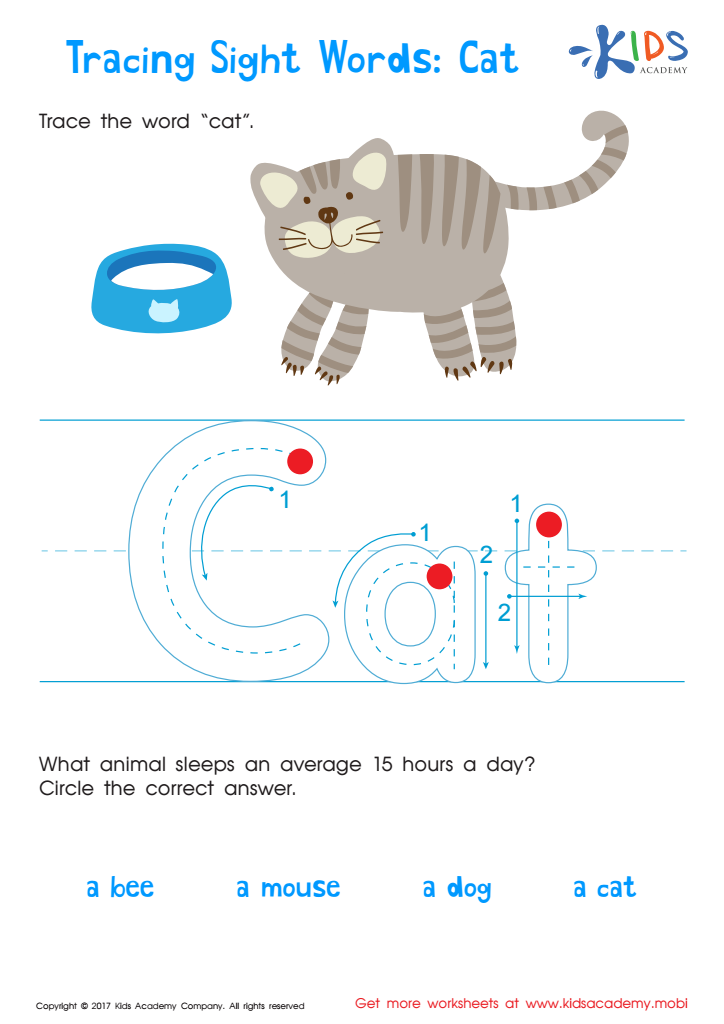

Cat Printable Sight Words Worksheet


Letter A Coloring Sheet
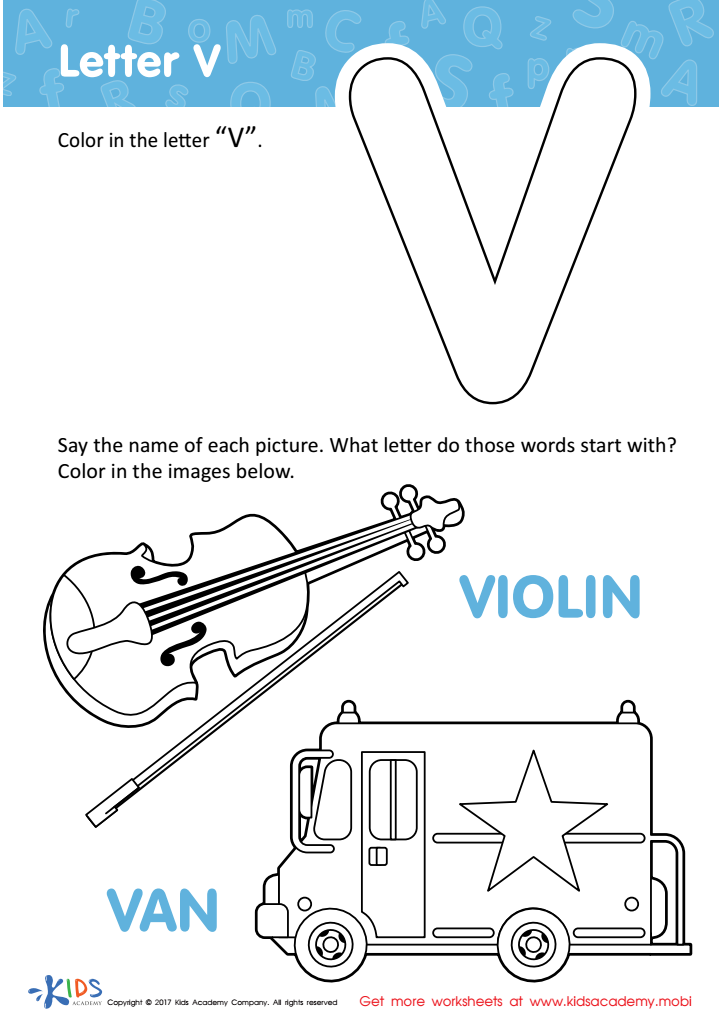

Letter V Coloring Sheet
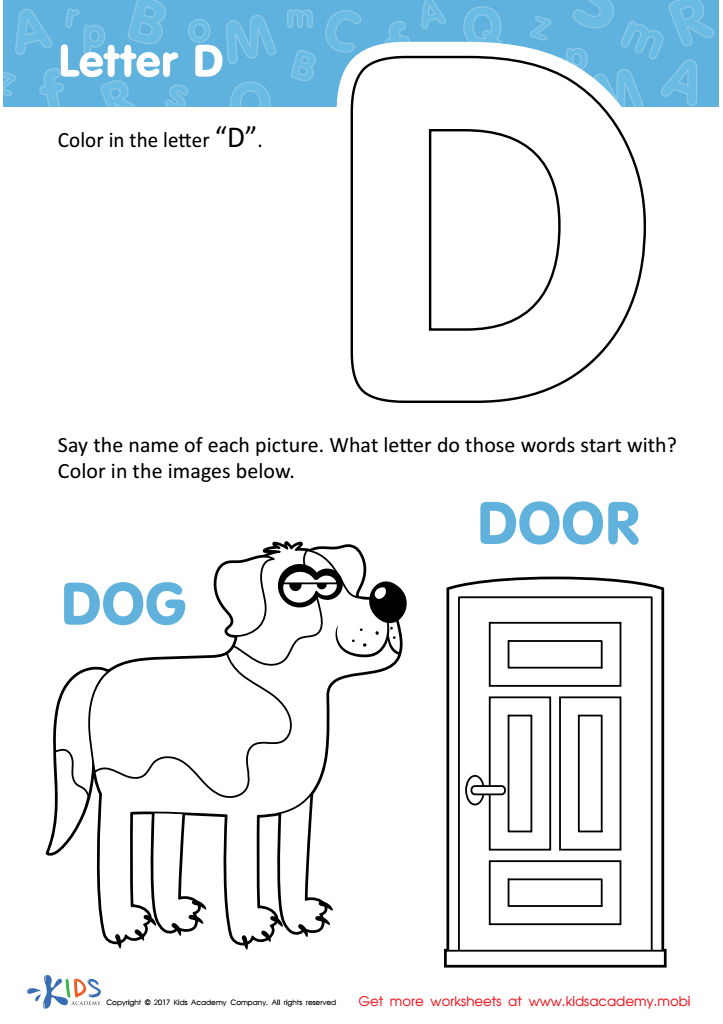

Letter D Coloring Sheet
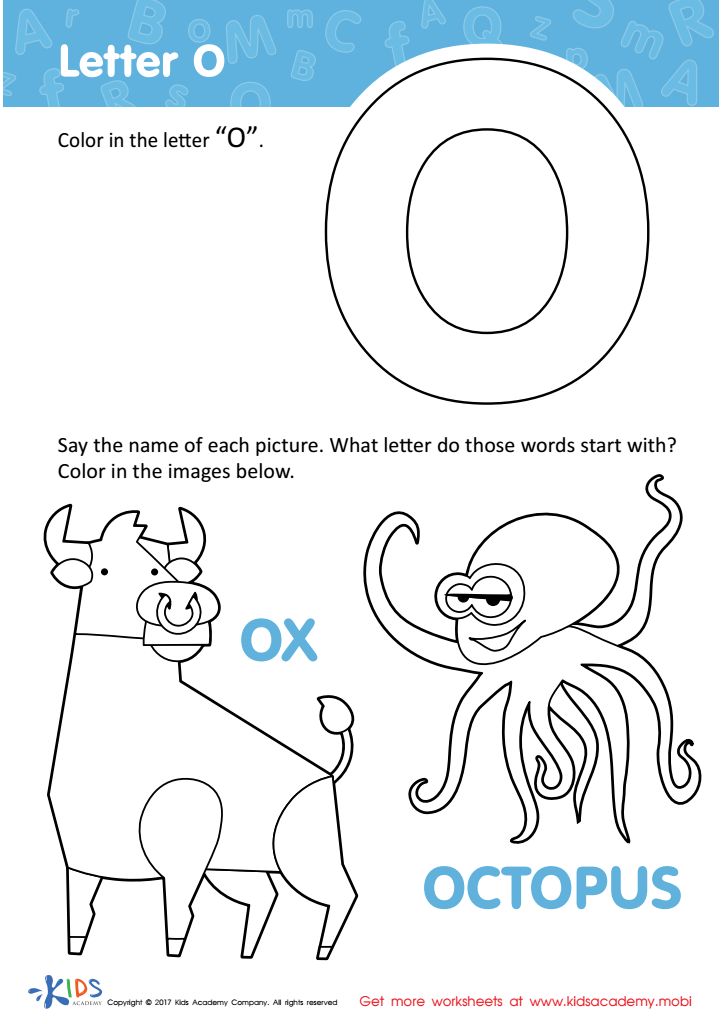

Letter O Coloring Sheet
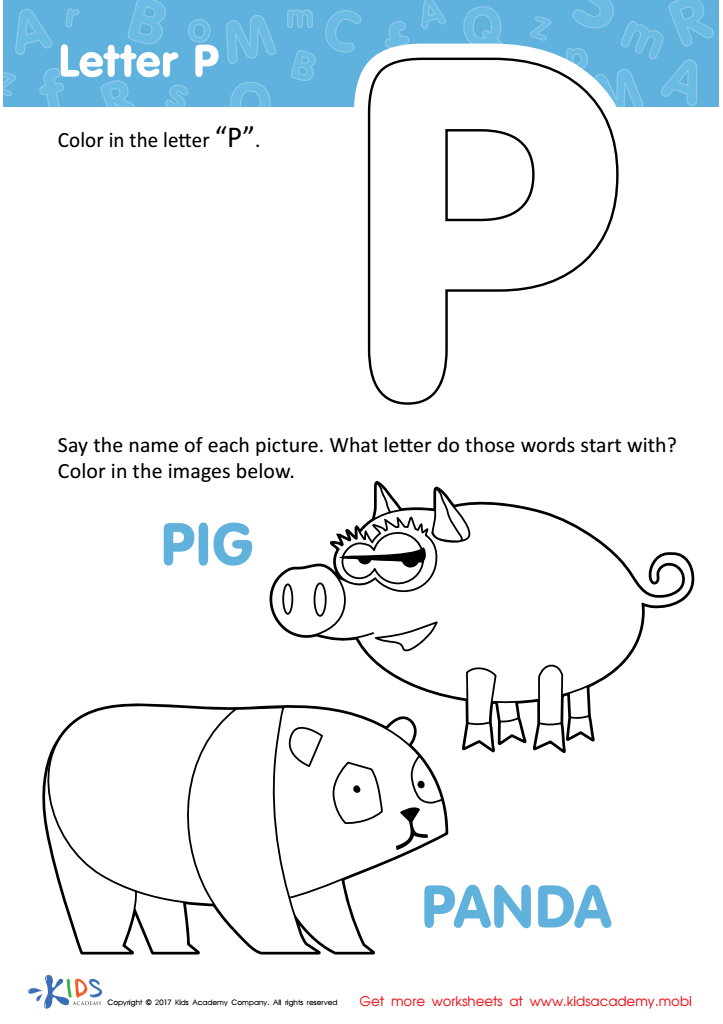

Letter P Coloring Sheet
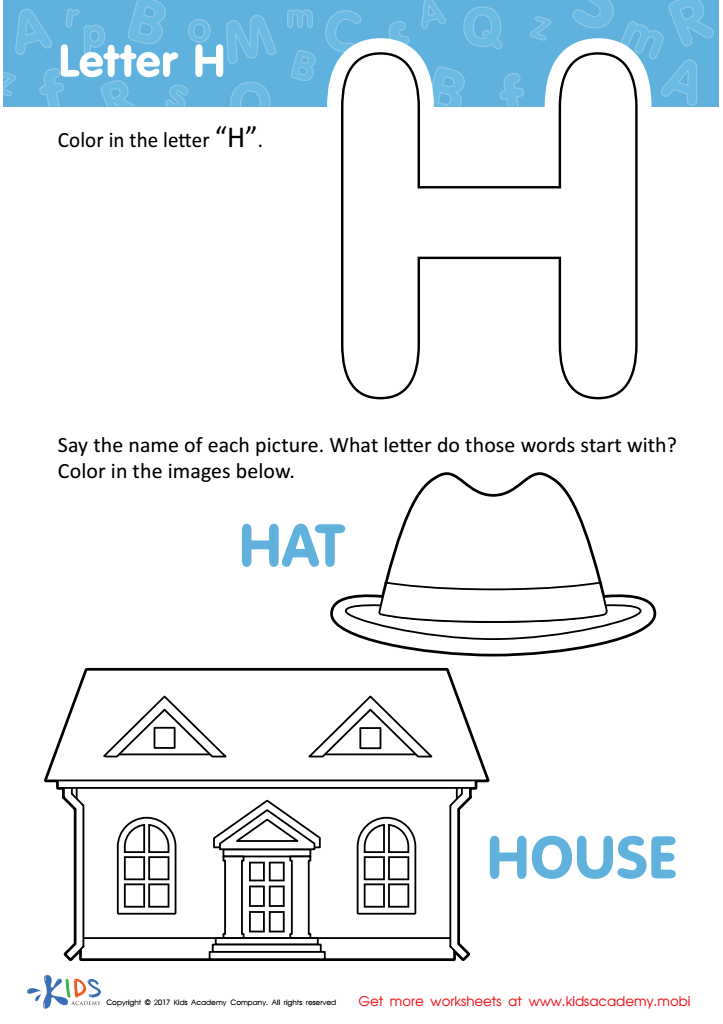

Letter H Coloring Sheet
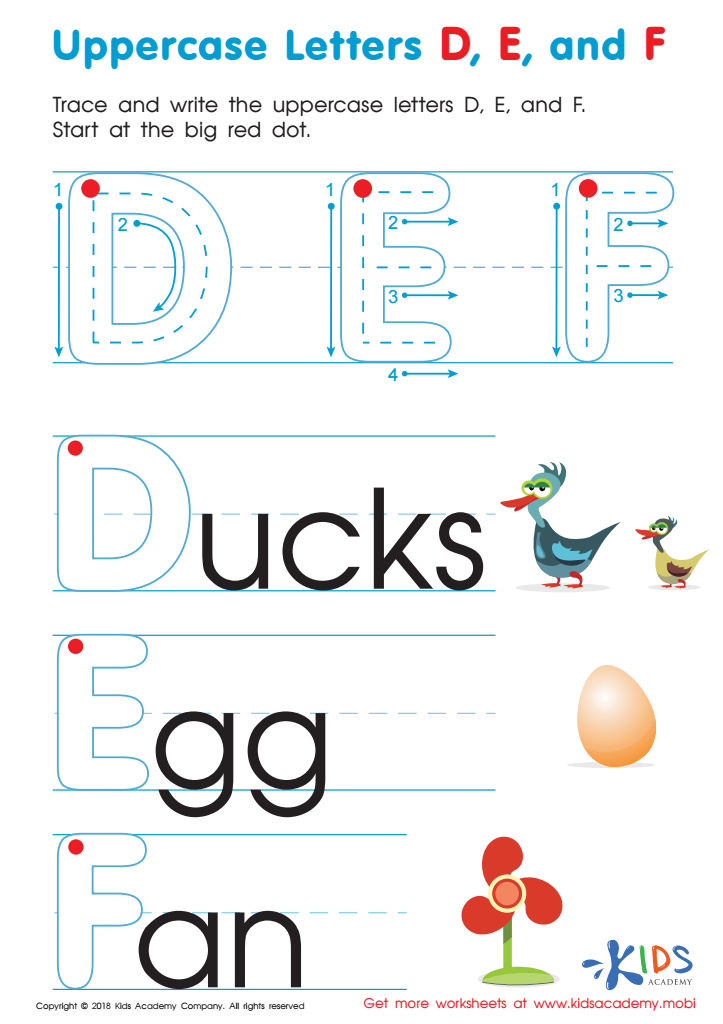

Uppercase Letters D, E, and F Worksheet
Letter tracing for ages 3-4 is fundamental in early childhood education, and both parents and teachers should pay careful attention to this activity. At this developmental stage, young children are honing their fine motor skills, which are crucial for tasks such as writing, buttoning a shirt, or even tying shoelaces. Letter tracing provides an enjoyable and engaging method to develop these skills, improving their hand-eye coordination and dexterity.
Beyond motor skill development, letter tracing introduces children to the alphabet, a foundational element of literacy. It helps them recognize and memorize the shapes of letters, linking visual symbols to sounds. This early familiarity builds the groundwork for reading and writing skills, which are essential for academic success. By engaging in letter tracing, children learn about order and sequencing, vital cognitive skills underpinning more complex learning activities.
Moreover, letter tracing fosters a sense of accomplishment. As children trace and eventually replicate letters, they gain confidence. This boosts their self-esteem and promotes a positive attitude toward learning, instilling a growth mindset that will benefit them throughout their education.
Participants in letter tracing activities also get gentle exposure to a classroom-like setting, helping them adjust socially. These collective activities stimulate collaboration and sharing, which are beneficial for social development. Therefore, parents and teachers play critical roles in making letter tracing a joyful and effective stepping stone in children’s educational journeys.
 Assign to My Students
Assign to My Students







